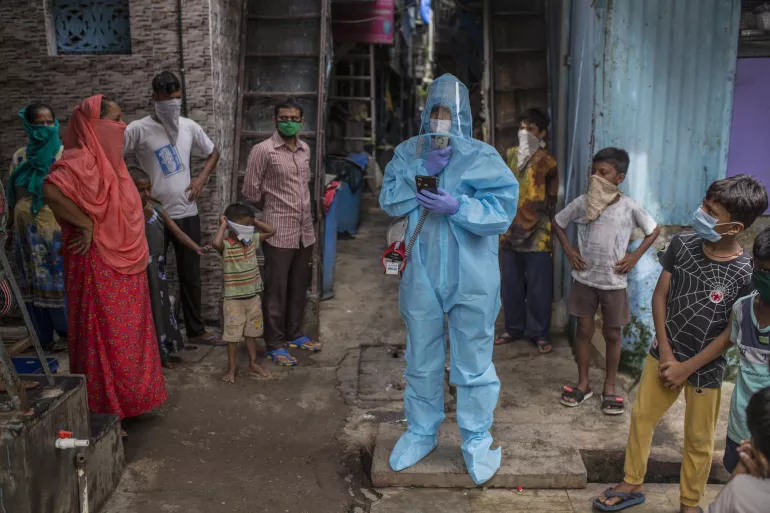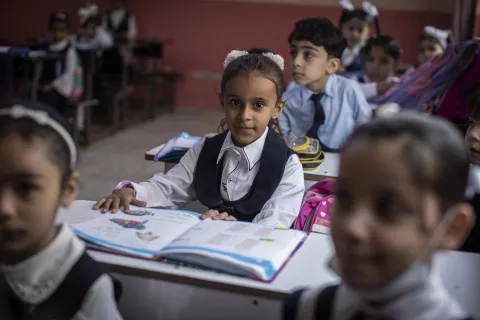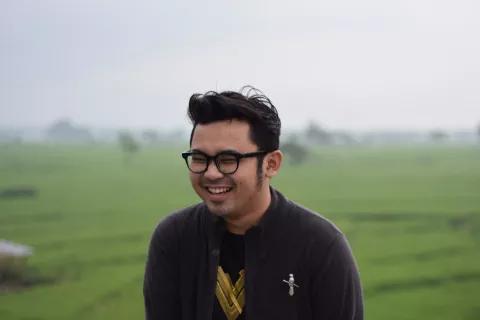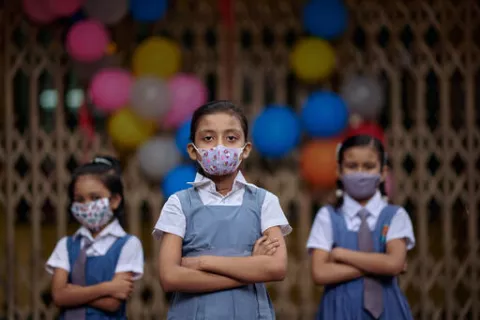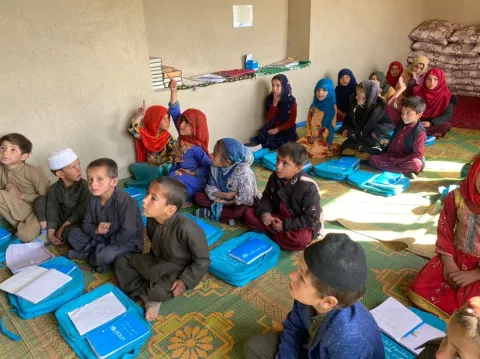Day after day our screens are filled with harrowing images of hospitals overrun, lines of people waiting desperately for a hospital bed or oxygen for a loved one. As the number of cases keeps climbing, the threat inches ever closer to home, family members, colleagues, friends, and neighbours.
I feel so helpless right now. Helpless at my friends and colleagues looking for ICU beds and oxygen cylinders, but not finding any. The situation feels helpless and terrible. And also, tragically familiar.
I still remember when my phone rang one afternoon in February 2020. It was my 75-year-old mother-in-law calling to say she was having difficulty breathing.
My heart sank.
I knew I had to get to her as quickly as possible but Visakhapatnam, a coastal town in southern India, was around 1400 kilometres from Mumbai, where I worked. The word COVID-19 hadn’t yet started to dominate everyone’s lives. We were only just beginning to hear about it, and I remember asking myself how this disease could make its way to my country, my town and to my own family like this.
I was still in denial when I embarked on the trip that week – one of the most exhausting of my life. We shuttled between hospitals and had to wrap our heads around multiple tests and medications. That was the first time we were really confronted with the hard reality of what the disease is all about.
At the time, wearing masks was still very new and people weren’t really taking it seriously. I can still hear the doctor’s voice in my ears reminding me to wear a mask when I was around my mother-in-law.
Thankfully, a combination of dedicated care, treatment and my mother-in-law’s strong will helped her beat the coronavirus and recover. It was a huge relief, and I returned to my duty station in Mumbai, where I confined myself at home for 14 days, in line with office protocols.
Who would have thought those 14 days at home would become months. On 24 March 2020, a national lockdown was declared. Everyone was left deeply uncertain about what was coming next. My college going children were worried about their exams; my husband and I were worried about how we would work from home. And we wondered how our parents, thousands of miles away, were going to manage on their own.
As anxious as we were, the scenes of migrant workers heading home – many on foot – were an early sign of how completely devastating this pandemic would prove to be for so many other families.
Our screens were filled with images of millions of migrant workers walking for hours, even days, with their children, carrying their whole life in cloth bags, often barefoot and with minimal water despite the scorching heat.
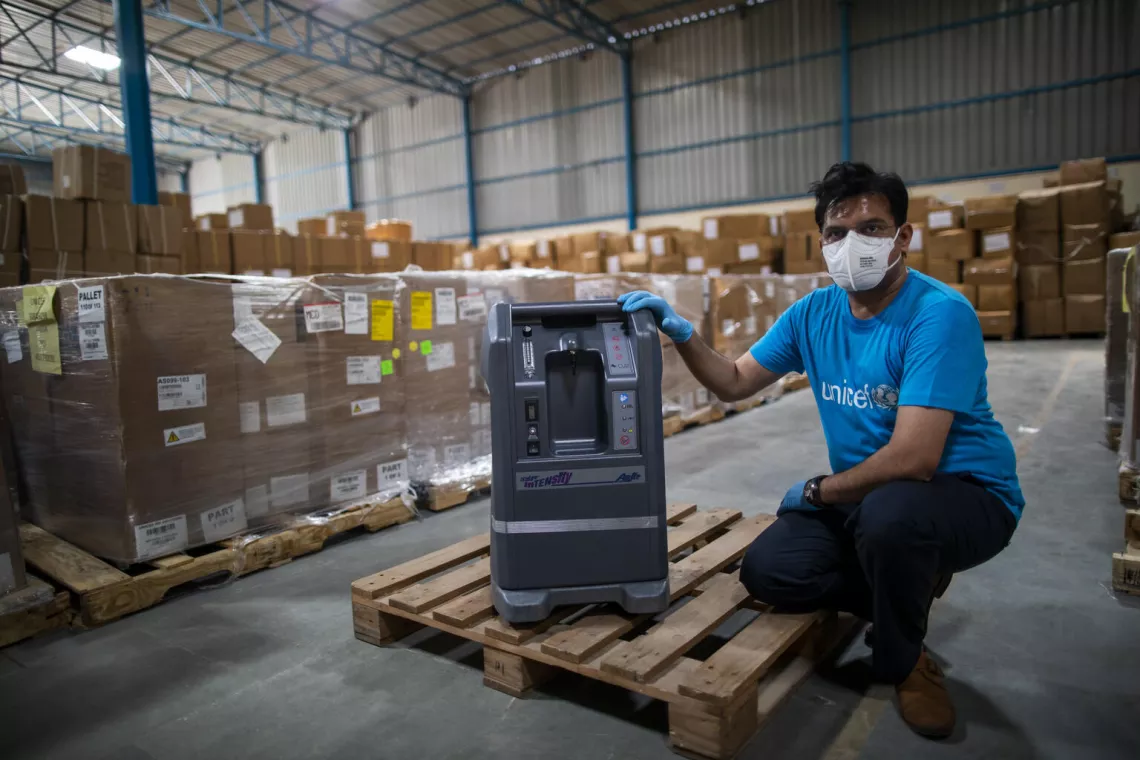
These informal migrant workers are the backbone of the big city economy: constructing houses, cooking, delivering food, cutting hair in salons, working in the automobile industry, plumbing, and delivering newspapers, among many other things. But with the announcement of the lockdown, companies closed their gates and many of these migrants felt they had no choice but to head to their hometowns and villages or else not have money to survive.
These images of people struggling to get home had a lasting impact and helped put my own challenges in perspective.
I was supporting the Disaster Risk Reduction programme and asked my supervisor to include me in the work they planned to do to ensure that these migrant workers reached home with dignity. It was the start of months of tiring but extremely satisfying work as I tried to juggle the challenges of this new working environment (and all those Zoom meetings!) with the expectations of my family: caring for my children, finding time to cook, clean and do other household chores.
Still, as much as I enjoyed the time bonding with my family over recipes, board games and other hobbies during this period, I never want to go back to 2020. COVID-19 seemed to be everywhere, all the time. I could feel the fear building up inside me. And I could sense the anxiety and tension in everybody’s voice, trying to convince ourselves that everything would get back to normal soon.
But when? We were all trying to remain positive and strong for each other. That’s why some of us at UNICEF India created a newsletter, “Ray of Hope”, to connect UNICEF India staff. We published almost 20 issues in 2020, and by January 2021, I was hoping the worst year I had seen was behind us.
2021 was waiting around the corner to prove me wrong.
As the cases have mounted again this year, I have started questioning everything. Why is it happening? What did we do wrong? Why does God want us to suffer like this? It’s so hard when literally every day you hear that someone you know has passed away. But that is what has been happening the past couple of weeks.
But what keeps me going is seeing all of us coming together to support each other. Whether we personally know someone or not, we are ready to make an extra call to support them. There are stories of friends driving miles to get an oxygen cylinder to a friend in need, of an elderly man giving up his bed for somebody younger, of people cooking food for patients at home, and of youngsters joining together with information on where facilities are available.
There are so many stories of compassion and kind actions that it makes me believe in humanity once again, that “We will overcome this and we will overcome this together”.
Jessinda Mathew is Senior Programme Associate in the Water, Hygiene and Sanitation (WASH) Section, UNICEF India.

